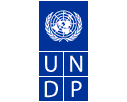

Noruega encabeza y RDC a la cola en el Índice de Desarrollo Humano

2011 Human Development Index: Norway at top, DR Congo last
Norway, Australia and the Netherlands lead the world in the 2011 Human Development Index (HDI), while the Democratic Republic of the Congo, Niger and Burundi are at the bottom of the Human Development Report’s annual rankings of national achievement in health, education and income, released today by the United Nations Development Programme (UNDP).
The United States, New Zealand, Canada, Ireland, Liechtenstein, Germany and Sweden round out the top 10 countries in the 2011 HDI, but when the Index is adjusted for internal inequalities in health, education and income, some of the wealthiest nations drop out of the HDI’s top 20: the United States falls from #4 to #23, the Republic of Korea from #15 to #32, and Israel from #17 to #25.
The United States and Israel drop in the Report’s Inequality-adjusted HDI (IHDI) mainly because of income inequality, though health care is also a factor in the US ranking change, while wide education gaps between generations detract from the Republic of Korea’s IHDI performance.
Other top national achievers rise in the IHDI due to greater relative internal equalities in health, education and income: Sweden jumps from #10 to #5, Denmark climbs from #16 to #12, and Slovenia rises from #21 to #14.
The IHDI and two other composite indices—the Multidimensional Poverty Index and the Gender Inequality Index—were designed to complement the Human Development Report’s HDI, which is based on national averages in schooling, life expectancy, and per capita income. The 2011 HDI covers a record 187 countries and territories, up from 169 in 2010, reflecting in part improved data availability for many small island states of the Caribbean and the Pacific. The 2011 country rankings are therefore not comparable to the 2010 Report’s HDI figures, the authors note.
“The Inequality-adjusted Human Development Index helps us assess better the levels of development for all segments of society, rather than for just the mythical ‘average’ person,” said Milorad Kovacevic, chief statistician for the Human Development Report. “We consider health and education distribution to be just as important in this equation as income, and the data show great inequities in many countries.”
Haga click aquí para seguir leyendo.
Haga click aquí para consultar historias de nuestro trabajo alrededor del mundo.